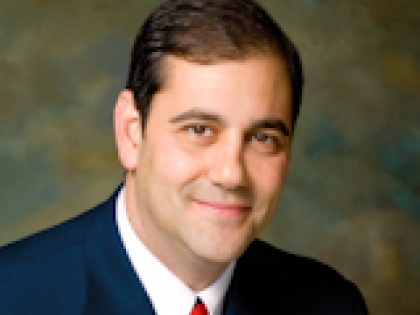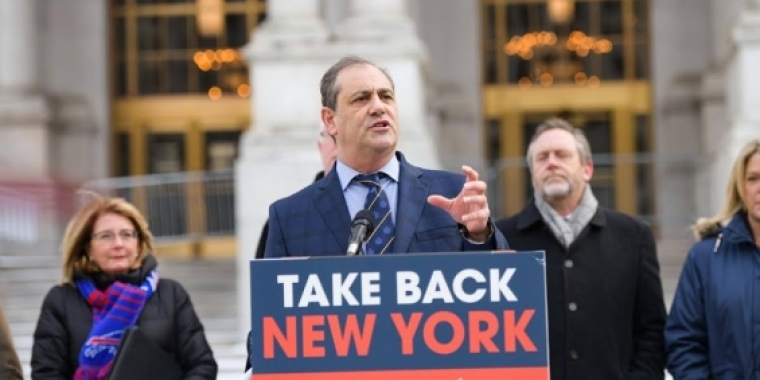
IN THE NEWS: Staten Island Advance: D-Day near for prescription drug addicts on Staten Island
STATEN ISLAND, N.Y. -- If you're a pill addict, it's time to get help now, since it's going to be much harder to get your fix from a doctor's prescription in just a few days time.
Aug. 27 is D-Day on a statewide database program designed to help physicians and pharmacies spot doctor-shoppers at a glance, so good luck hopping from medical office to medical office to stock up on multiple scripts for the pills you desperately crave.
And that means the price on the street is going to go up as well, so it's time to decide: Get help, or prepare for an even darker future.
When New York's "I-STOP" data-sharing system is up and running, those pills are going to get very scarce and very expensive.
But as Staten Islanders grapple with a prescription pill scourge that kills a borough resident every nine days, state officials and drug treatment professionals hope that the new database will put the first major dent in the epidemic.
"I-STOP" -- short for the Internet System For Tracking Over-Prescribing Act -- was signed into law by Gov. Andrew Cuomo last year.
It will give physicians and pharmacists access to their patients' up-to-the-minute prescription history, so they can determine if said patients are actually addicts or dealers looking to score multiple scripts by hopping from doctor to doctor.
The law also requires doctors look up that info before handing out a prescription for restricted controlled substances, including powerful and addictive painkillers like oxycodone and hydrocodone.
The law requires that the database go live on Aug. 27.
According to officials with the state Health Department, which oversees the system, it's proceeding on schedule.
In fact, an early version has been in effect for the past eight weeks, and, officials say, doctors are using it en masse, making more than 138,000 requests for information on almost 128,000 separate patients.
"To put that in context, we had approximately 371,000 searches during the first three years of the old (database system)," state Health Department spokesman James P. O'Hare recently. "We continue to see increased use each week, with a 17.6 percent increase from two weeks ago."
HOW IT WORKS
The searches work this way:
The doctor logs in, types in the patient's name, gender and date of birth, agrees to the terms and conditions, and within two clicks, an extended list of prescriptions shows up, as well as information about when the patient had them filled, and at which pharmacy.
Until recently, doctors, but not pharmacists, have been using a less powerful database that's been in place since 2010.
That system flags patients suspected of doctor-shopping, but the information is often out of date, meaning a new patient who's going to multiple doctors won't trigger any cautions until he or she has been at it for a few months at least.
Right now, the data doctors get is still a few months old, but by Aug. 27, it'll be up-to-date.
The I-STOP law was introduced by Attorney General Eric Schneiderman and championed by Assemblyman Michael Cusick (D-Mid-Island) and state Sen. Andrew Lanza (R-Staten Island).
'INFORMATION IS KING'
"I think it will help. It will help arm pharmacists and physicians with information they didn't have prior," says Dr. Marianne LaBarbera, who runs a private practice in Dongan Hills. As an early adopter of the state's 2010 database, she's been looking up patients for years, and in 2011, she lamented how the information it provided is months old.
Still, she expects some doctors might be put off by the extra workload.
The search process won't exactly stump someone with a basic computer savvy, but it can add five to ten minutes to every patient's visit, and that can mean fewer appointments per day and a possible financial hit.
"It's time-consuming," she says. "Patients know they wait -- they wait in the doctor's office. Many times they don't realize why they're waiting."
Still, that hasn't stopped her from using the 2010 system religiously for the past few years.
"The information's valuable. ... Information is king," she explains, noting that she's fortunate to have patients who are compliant and generally don't doctor shop, and that she typically doesn't prescribe oxycodone.
At Staten Island University Hospital, staff and physicians have been planning for Aug. 27 for weeks, holding regular meetings, and keeping track of how the 2010 database has been changing over the past two months, said Dr. Donna Seminara, who up until July 1 was the hospital's' medical and dental staff president. She's now the director of geriatrics.
"It will cause some back-up, but we can register some staff members to bring up the screen," she says.
'TAKING IT SERIOUSLY'
The database will most often come into play for patients getting prescriptions as they're discharged, and for the hospital's clinic patients. Emergency room patients don't apply, as they're getting short-term prescriptions, and are exempt from the database requirement.
"I think the doctors are taking it seriously," she said. "It's a very big step for New York state."
The discussion has already spurred doctors to evaluate how they're prescribing pain medications, and at what dosages, she says, pointing to recent forums by Dr. Thomas Farley, the city's health commissioner.
In June, Dr. Farley called on physicians to stick to new prescribing guidelines that include only writing out prescriptions for a few days worth of powerful, potentially addictive opioids for post-surgery pain.
Dr. Seminara calls that type of self-evaluation a "positive consequence" of the database law, adding that she hopes doctors won't simply see I-STOP as a reason to not prescribe controlled substances to anyone, regardless of symptoms, just to sidestep potential problems.
"To not approach it at all is an error," she says. "I think it's really hard, when you have a person in acute pain. ... In general, physicians are really trying to make good faith efforts to treat people appropriately."
CHANGING PRACTICES
Dr. Farley spoke at two physician summits co-sponsored by the Tackling Youth Substance Abuse coalition, and, according to Adrienne Abbate, the coalition's director, doctors packed the room at both summits.
"For treatment providers, everybody's pretty excited about I-STOP," she says. Several physicians have taken a "wait and see" stance because they're concerned about the extra burden, she added.
Until recently, 180-pill prescriptions for 30-mg oxycodone -- perhaps the dosage most sought after by addicts and dealers - have been par for the course for several Staten Island doctors.
That's changed, though. Many private-practice physicians refer patients to pain-management specialists now instead of prescribing oxycodone or other painkillers themselves, and, as Jeneane Chirico, the owner of Annadale Family Pharmacy, recounts, drug wholesalers have significantly scaled back the amount of the drug they'll send out to pharmacies.
HEROIN'S RISE
"The unintended consequence is that maybe we'll see people switching to heroin," says Jacqueline Fiore, the executive director of the YMCA Counseling Service on Staten Island.
That shift has already started, she says.
"It's been happening for probably close to two years," she notes. "It started picking up about a year ago. It's been something that we've been seeing more and more of anecdotaly."
She added, though, "Don't get me wrong -- I think that I-STOP is a much, much needed system."
Even what might seem like a negative consequence, tighter supply driving more addicts to get their pills on the street, could prove positive in the long term, she says. "Maybe we can identify them quicker and get them into treatment," Ms. Fiore says.
Ms. Chirico, meanwhile, admits to being "excited" about the new database. "I like the idea that doctors have to check first ," she says. "Too bad it's just New York. New Jersey didn't jump on that. Maybe they will," she says.
Ms. Chirico stopped stocking oxycodone at Annadale Family Pharmacy in April 2010 after a robber passed her teenage daughter a threatening note over the pharmacy counter, and demanded the drug.
That robber, authorities later found out, was helping supply a million-dollar drug ring that sold pills out of an ice cream truck across the South Shore, and his arrest in the stick-up ultimately exposed the conspiracy.
"I'm glad, because really, honestly, it stops those people, 360 pills here and there," she says. "My kids are teenagers. I hear too many things."
By
http://www.silive.com/news/index.ssf/2013/08/d-day_near_for_rx_pill_addicts.html



